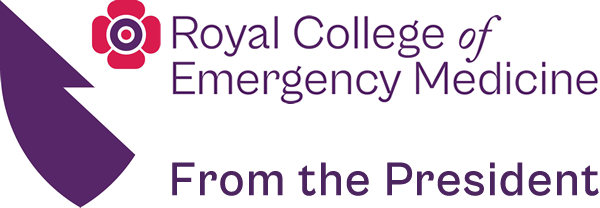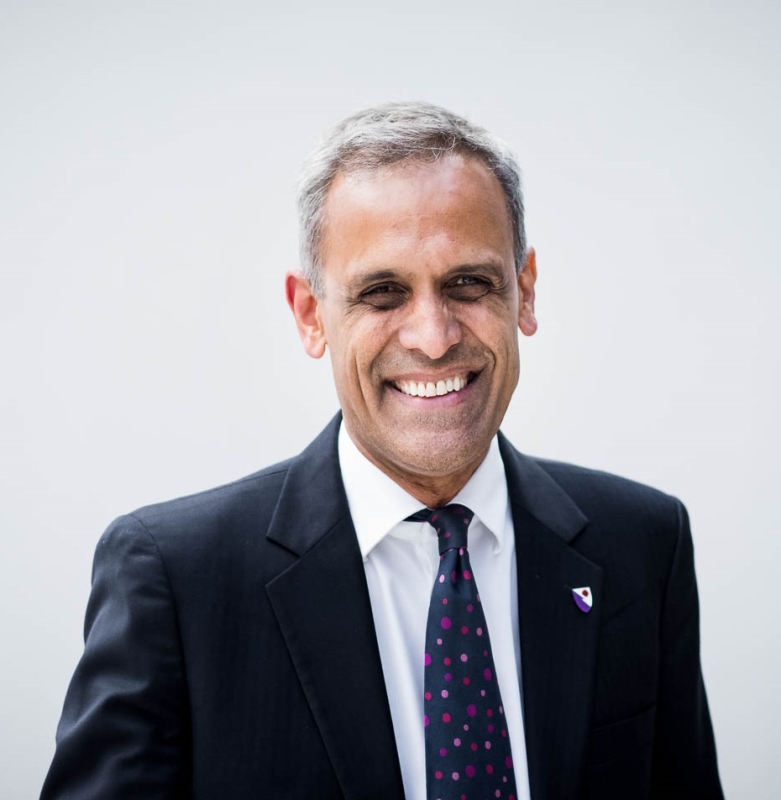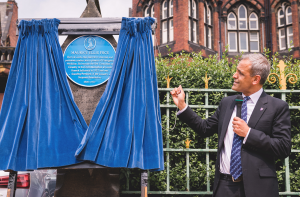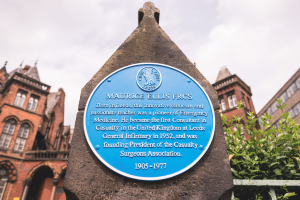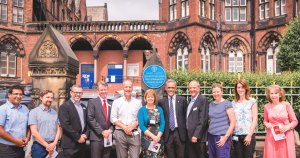 Greetings from the height of a July summer in Yorkshire (!). Wimbledon and strawberries have been supplemented and indeed complemented by the joys of the football World Cup, no doubt of interest to some at least depending upon your team. If previous World Cups are anything to go by, the periods during the key games will be very quiet in EDs around the country, though perhaps not afterwards.
Greetings from the height of a July summer in Yorkshire (!). Wimbledon and strawberries have been supplemented and indeed complemented by the joys of the football World Cup, no doubt of interest to some at least depending upon your team. If previous World Cups are anything to go by, the periods during the key games will be very quiet in EDs around the country, though perhaps not afterwards.
The past month has been packed with a variety of activities but I have picked out three for your interest.
A true sense of history
Emergency physicians have to be great communicators and change agents amongst their many skills. The Hausa language is a complex local dialect of Northern Nigeria. Learning it and then setting up a programme to try and control the consequences of African trypanosomiasis, also known as sleeping sickness would be a challenge many of us might regard as a bridge too far. That of course was the challenge that Maurice Ellis set himself back in 1933 when he sailed to Nigeria. If that were not enough he then went onto become the first Casualty Surgeon / A&E consultant at the Leeds General Infirmary in 1952 (certainly the first in the UK, if not the world) before co-founding the Casualty Surgeons Association (CSA) and becoming its first President in 1967. The CSA of course has since metamorphised to become the RCEM over the last 50 years. A remarkable man who made remarkable history.
Last month as a final wrap up to the 50th Golden Jubilee celebrations of the specialty I had the immense pleasure to recognise this amazing man more formally and with a sense of permanence. With the help of the Leeds Civic Trust, the Chief Executive of Leeds Teaching Hospitals, Julian Hartley and my excellent colleague in ED, Graham Johnson, I unveiled a Blue Plaque in honour of Maurice Ellis. It was a remarkable privilege for me to pull the cord on behalf of us all. A permanent memory now is in place when you walk past the Leeds General Infirmary to the man who helped ‘build the road that we now walk upon’. Mr Ellis – we salute you!
Defining our future
Remembering the past and where we have come from is of course important, but our predecessors would also want to know what we are doing to define our future. I want to highlight just three aspects of College activity that I believe will have a beneficial long term effect and that I hope you will be able to support in different ways.
The coming month will see us launching key elements of our workforce strategy at both a junior and senior decision maker level. This follows on from the strategy that we agreed last year with NHS England / Improvement & HEE that will increase training numbers for the next four years from a baseline of 300 to up to 400/yr. Similar discussions are ongoing in the devolved nations. The aim is to describe clearly what systems should aim for in terms of ‘depth and breadth’ as the number of trained emergency physicians increases significantly each year over the next 5-10 years. At present we are producing 200 to 230 consultants /yr but this will rise steadily over the next 5 years to over 350 /yr before falling to a baseline (to be agreed ) thereafter. There is every likelihood that the number of consultants will increase by 50% overall in the next 5 years as a result which will have a very positive effect on the system, our own working lives and of course our patients. Other work on reducing attrition amongst trainees with a variety of strategies and maximising retention amongst the trained workforce is also ongoing and will help further.
Academically, the RCEM is in the midst of working hard to develop a new curriculum for Emergency Medicine following guidance set by the General Medical Council. I am especially grateful to Dr Will Townend who is leading this work with other colleagues on the Curriculum Committee. The RCEM Council agreed a project plan that will last over the next two years to bring this project to fruition. This work too will define the next decade and lead to ever higher standards that will maintain our place as having amongst the very best training programmes for Emergency Medicine in the world.
At an international level, this month will also see us launch our new international strategy. This is a first for us in terms of better defining a comprehensive and cogent approach to how we interact with colleagues and national bodies internationally. We have a number of initiatives that we have been pushing forward with our two new committees, the International Education committee chaired by our Dean, Jason Long and the Global EM chaired by Giles Cattermole. The RCEM has a great track record in aspects of our work in various countries but I have no doubt that our approach going forwards will have a lasting beneficial effect in the countries we are involved in helping and collaborating with.
And finally….
Those of you who made the journey to Mexico City for the International Conference of Emergency Medicine will have been impressed with the remarkable history of Mexico, the fantastic food and of course the excellent hospitality and friendship. I also attended a number of important meetings of the International Federation of EM (IFEM). We were as you know one of the four founding Colleges of IFEM and indeed the first IFEM conference was held in 1986 in London – a true sense of history that Maurice Ellis would have been proud of. I was also delighted and honored at the Assembly meeting of IFEM nations to be elected to represent Europe on the Board of IFEM. I believe this will help us to sit at the top table to better collaborate with IFEM and member countries in a range of activities.
It has been a busy month. I wish you a good summer holidays if you are going away or just sitting back to enjoy the blazing summer sun.
Dr Taj Hassan
President, RCEM
